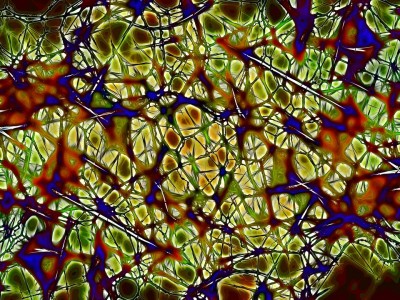Professor Allen delivers the prestigious Register Lecture and shares findings from years of pain research; Thursday, Nov. 10, at 7:30 p.m.
TACOMA, Wash. – Doctors have yet to explain why someone suffering chronic pain may suddenly experience a flare-up of excruciating pain.
However, Roger Allen, an internationally known pain specialist in the University of Puget Sound’s School of Physical Therapy, has uncovered some curious patterns in such incidents that can help patients cope, and that may lead to further scientific progress.
Allen will deliver the 44th John D. Regester Lecture this fall and talk about the research he and his doctoral candidate students have done on this topic. “Echoes of Pain in the Neuromatrix,” intended for general audiences, will take place on Thursday, Nov. 10, at 7:30 p.m., in the Tahoma Room of Thomas Hall on campus. The event is free, everyone is welcome, and a map of the campus is below.
Allen’s decades of work on pain have taken him down some pioneering paths, in part because his professional career has combined hands-on treatment of chronic pain patients with in-depth expertise in psychophysiology, the study of the links between our thoughts and emotions, and physical illnesses.
In his talk, he will explain the neuromatrix theory of pain in which the human mind essentially contains a “virtual body” representing our own bodies. This mental construct perceives and suffers the pain we feel. Normally pain that we experience arises from an injury to the body—but in chronic pain, the sensation may arise in the brain entirely independently, as in cases of a phantom limb. This is because, as our pain persists, our brains and spines develop new connections between the sensation of pain, our emotional reaction to the pain, and our memories. The new connections can become so strong that even a smell, thought, or light touch may set off a searing pain.
Allen and his students studied patients with fibromyalgia, migraines, complex regional pain syndrome (CRPS), and phantom limb pain to explore why people with chronic pain can experience sudden flare-ups with no clear cause.
They uncovered a connection between psychological stress and severe episodes of pain. Remarkably, they also found that the painful flares consistently occurred ten days after the highly stressful events. That delay appeared to be due to the activity of the hormone thyroxine.
In his lecture, Allen will explain the connections found so far among these various factors and why these findings can make a difference to those with chronic pain. He also will explain how this work has led him to philosophical questions about the nature of our perceptions and our assessment of our external reality.
The lecture promises to provide an illuminating evening for the audience, who will have the opportunity to ask questions at the end.
The John D. Regester Lecture series was established in 1965 to honor John Regester, who joined the Puget Sound faculty in 1924. The address is given by a university member who exemplifies the qualities of scholarship and intellectual integrity that professors and students have long associated with Regester, who taught philosophy and served as dean of the university and graduate school.
Roger Allen, Ph.D., PT, is the author of three textbooks and chapters in three editions of the benchmark reference Bonica's Management of Pain. He has made more than 100 national and international research presentations at venues including the Nobel Institute for Neurophysiology, World Congress on Pain, World Confederation for Physical Therapy, World Congress of Neurology, World Institute of Pain, and American Physical Therapy Association, among others. For his neurovascular innervation research, he received the Brown-Sequard Medal from the Institut de Physiologie Neurologie. At the University of Puget Sound, he received the Dirk Andrew Phibbs Memorial Award for research and the Excellence in Teaching Award. Allen has published widely in professional journals and taught physical therapy at Puget Sound for more than 18 years. He earlier taught psychophysiology at a large research-focused university and practiced as a physical therapist specializing in treating chronic pain. More than 90 of his Puget Sound students have presented research at national or international conferences or published work in professional journals, and four have received international research awards.
For directions and a map of the University of Puget Sound campus: pugetsound.edu/directions
For accessibility information, please contact accessibility@pugetsound.edu or 253.879.3931, or visit pugetsound.edu/accessibility.
Press photos of the event poster are available upon request.
Photo on page: Brain cells, neurons (public domain)
Tweet this: #ChronicPain talk by intl authority Roger Allen @univpugetsound Nov 10, 7:30 pm Free #physicaltherapy #psychophysiology http://bit.ly/2dfI3Ig
Follow us on Twitter! twitter.com/univpugetsound



